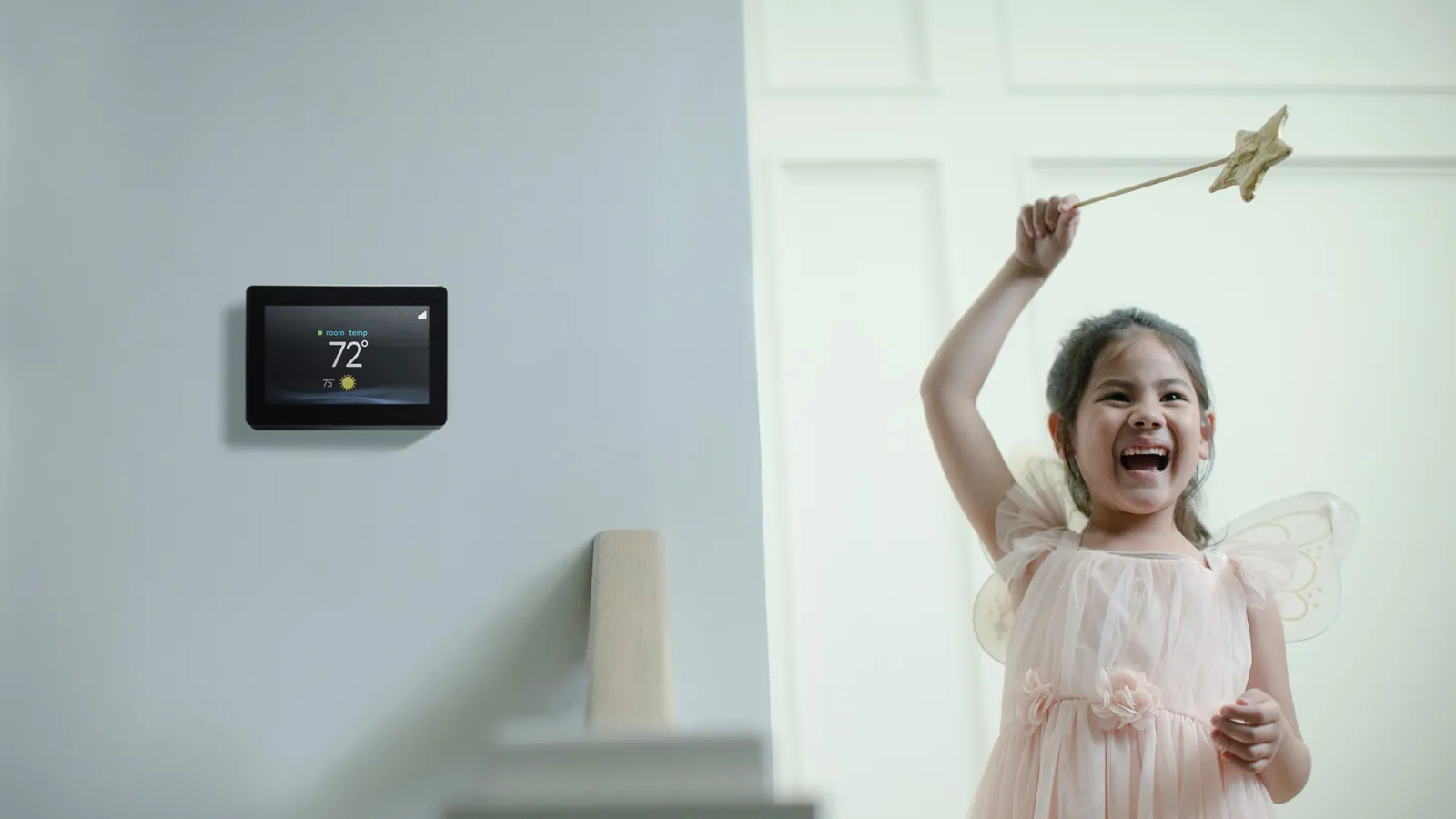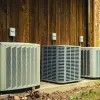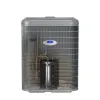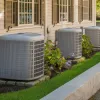Here in the South, it gets really humid during the summer. Seeing as we routinely install and service air conditioners and dehumidifiers in this region, we often get the following question: What should the humidity be in your house in summer?
The simplest answer is “whatever humidity level you prefer!” But we all know that’s not what’s being asked.
When people come to us with this question, they usually want to know two things:
- What levels of indoor relative humidity, or RH, are generally considered comfortable?
- Is my existing air conditioning system able to achieve those levels without adjustments?
The reason they’re asking is because they feel like their home’s humidity is just too darn high. They don’t know what the exact level is, but they know it doesn’t feel comfortable. Assuming their home’s humidity level is within the “uncomfortable” RH range, they want to know what levels the “comfortable” realm includes and how they can achieve them.
That being the case, let’s start with the first part of this important question: the levels of relative humidity that are widely considered to be comfortable for people.
What are the comfortable levels of relative humidity?
Here in the Atlanta area, we often hear things like “current conditions are 89 degrees and 95% humidity” on the local weather report. In other words, it’s hot and humid outside.
So, if the outdoor humidity level is 95% RH, what do you want it to be inside your home?
Most people feel comfortable when indoor relative humidity (RH) is between 45% and 55% in the summer and 30-40% in the winter. That’s the ideal range in most cases.
Chances are, if you’re feeling clammy, sweaty, and generally uncomfortable in your home even though you’ve got the thermostat set to a supposedly comfortable temperature, you’re at somewhere over 60% RH.
This doesn’t mean there’s something wrong with you or your air conditioning system. It’s actually a really common problem. But it does mean that you might benefit from some adjustments to your air conditioning system, supplemental dehumidification, home performance upgrades, or a combination of those things.
Can your air conditioner get you below 55% RH?
In an ideal scenario, yes. Your air conditioner would get you around 55% RH or below, even on the hottest, most humid days.
But very few people have ideal conditions for this in their homes. Let’s consider why that is.
For starters, most folks have a standard, single-speed air conditioner. These units turn on when the home needs cooling and turn off when the thermostat setting is satisfied. Air conditioners, of course, do dehumidify your home while they’re running. That’s the other great thing they do aside from lowering temperature.
However, when the AC isn’t running, there’s no humidity being removed.
The AC might turn on and run through a cycle, but it’s probably not running long enough to get your humidity down to a comfortable level. A tolerable level? Perhaps. But not a comfortable one. Especially not during peak summer.
How is all that humidity sneaking into your home? Through gaps and cracks in the building envelope, most of which are located between your living space and your crawlspace or attic.
In most homes, those areas are not sealed off. The result is that there is a lot of outdoor air infiltration into the home. The AC will mitigate some of the discomfort from that air leakage, but not all of it.
Solutions to high indoor humidity
Just what in the world can you do about this problem? Here are a few different approaches:
- Air seal your home: This deals with the air infiltration problem. The best approach is to have a home performance professional perform an energy audit to identify areas where there’s a lot of air leaks. Seal those off, and you’ll keep more humidity out of your home in the first place.
- Make some adjustments to your air conditioning system: Most ACs are set to move air at a rate of 400 CFM, but setting the fan to move 350 CFM of air is often the best choice for humid climates. An HVAC technician will know how to change your AC’s fan speed. Other AC adjustments that may improve humidity include keeping the coil clean and maintaining the proper refrigerant charge.
- Upgrade to a variable speed AC: Unlike standard air conditioners, variable speed systems run at a low speed most of the time and ramp up and down as your cooling needs change. During the summer, they’ll maintain that low speed pretty much all the time, providing near-constant dehumidification.
- Install a whole-house dehumidifier: If a variable speed AC isn’t in your budget, doesn’t make sense right now, or you also want better humidity management during the spring and fall (those months are also humid down here), a whole-house dehumidifier makes a lot of sense. Installing a whole-house dehumidifier gives you supplemental dehumidification. Even when the AC is off, the dehumidifier will remove humidity down to an RH level that you specify.
So, which of these options makes sense for your home? In some cases, one approach is like a panacea for humidity. Some homeowners install the dehumidifier and voila! All of their humidity problems are gone.
In other homes, some combination of the above solutions makes the most sense.
For example, a homeowner might decide to air seal their home and have an HVAC contractor lower the AC fan speed to 350 CFM. While these changes might help a lot with humidity during the summer months, the homeowner may plan to upgrade to a variable speed air conditioning system in a few years or whenever it’s time to replace the existing AC.
Ultimately, there is a way to get your home’s humidity to that coveted 45%-55% RH range during the summer. How you do it will depend on your preferences, the attributes of your home, and your current air conditioning situation.
Conclusion: What should the humidity be in your house in summer?
It can be whatever you want it to be, but somewhere between 45% and 55% RH is ideal.
Some people are lucky enough to achieve comfortable humidity levels without touching a thing! When your AC is the right size for your home and the air infiltration situation isn’t too severe, even a standard air conditioning system might be sufficient.
But in many cases, figuring out the humidity problem requires some investigation, analysis, and/or investments in additional HVAC equipment.
If you live in the Atlanta Metro area and need help getting the humidity situation at your home under control, give us a shout at (404) 282-2915 today or fill out the form below!






